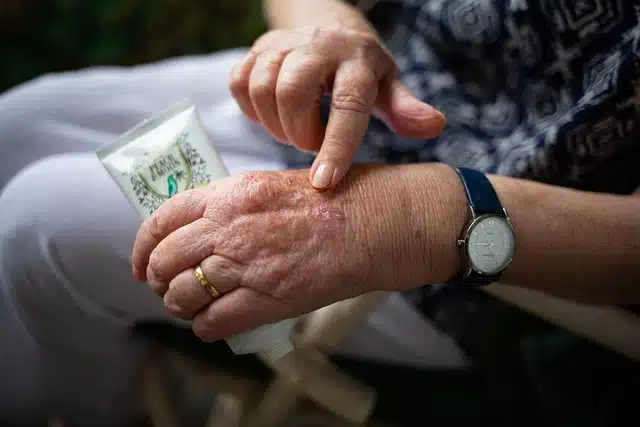
Platitudes are similar to clichés and stereotypes.
Topic comes from a Greek word and refers to a widely used, trivial or vulgar expression or idea . It is a stereotyped idea or a commonplace that, if used so much, loses its value.
On the contrary, atopic is that which is not linked to a precise site or a specific reason, as is the case with atopic dermatitis , the causes of which cannot be determined. It usually manifests itself as a type of psoriasis but with milder consequences, and its appearance is as common in winter as in summer; Some people find sun exposure very effective in healing, while for others, it is harmful.
Topics and language
Platitudes can be considered a language vice given their excessive use. Those who use them demonstrate few expressive resources or their preference for copying already known expressions. Platitudes are also used to disguise a truth (especially in political discourse) or to simplify an idea.
Stereotypes and clichés are other concepts that are similar to the idea of a cliché. For example: a cliché in romantic novels or movies consists of presenting a couple made up of a rich man and a poor woman, who meet, fall in love and, after overcoming all kinds of obstacles, manage to consecrate their love beyond the limits. social differences.
Readers or viewers who confront a work with these topics already know what to expect and even establish a tacit pact with the author. A cliché cannot be broken without generating strangeness (which would happen if the protagonists end up separated or upset).

In medicine, a topical is a product that is applied locally and externally.
The case of homosexuality
Minorities are usually the perfect target for clichés, which try by all means to tarnish their image with unfounded stories. Let's look at some topics about homosexuals:
* everyone maintains a promiscuous lifestyle;
* They are the only human beings who can contract AIDS, or those who spread it;
* feel physical attraction to anyone of the same gender;
* they are good dancers;
* They take care of their body and their image in general, exercising, eating healthily , always dressing in fashion, combining colors of clothing, shoes and accessories, and showing off a well-groomed complexion and a current hairstyle;
* feel disgust at the mere idea of the body of the opposite gender;
* they do not play sports or are interested in them;
* they are good at computing and the arts in general;
* Men are effeminate and women are masculine.
The dangers of certain topics
The list goes on and reaches even more absurd limits than those raised by these false claims . As can be seen, the nature of a topic can be light and insignificant, as well as serious and harmful to healthy coexistence in a society. To understand the impact that one of these ideas can have on people's minds, let's take AIDS as an example: despite the numerous statements by the doctors who treated the first cases of this terrible disease, in which it is revealed Since there have always been heterosexual patients, it seems impossible to destroy the relationship that exists between this and homosexuality.
Like any form of prejudice , clichés are a formula within everyone's reach to atrophy our ability to reason, giving us a series of erroneous and empty concepts, which make our daily lives easier while making life more difficult for the unfortunate protagonists of our absurd statements.
The notion in rhetoric and medicine
For rhetoric , a topic is a conceptual or formal scheme with certain formulas that are repeated almost without variations. One could speak of thematic constants or universal themes that run through different works. In everyday language, in fact, the word topic is often used as a synonym for topic ( "I'm interested in books on this topic" ).
In the field of medicine , finally, a topical is a medicine for external and local application.
